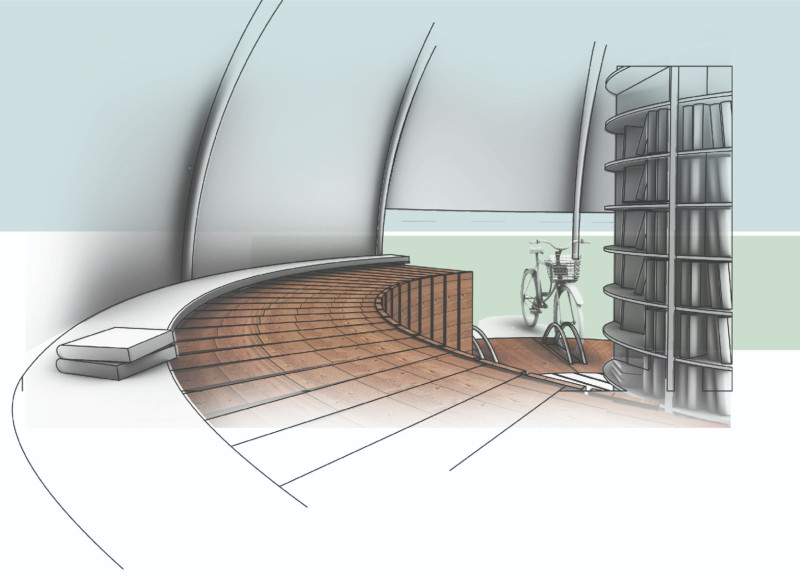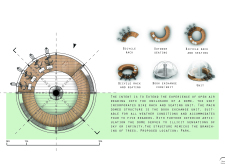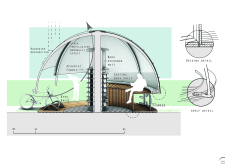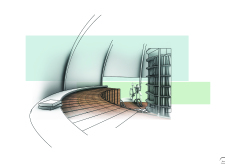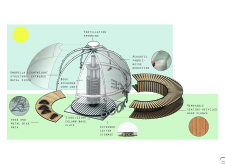5 key facts about this project
The proposed design creates an inviting space for open-air reading, situated within a park. The centerpiece is a domed structure named the Book Exchange unit, designed to blend the indoors and outdoors. This space aims to encourage community interaction while enhancing the experience of reading in nature.
Concept and Structure
The dome serves a dual purpose: providing shelter and creating a feeling of openness that reflects the vastness of the sky. Its shape is inspired by the natural world, mimicking the way tree branches extend outward. This design helps create a calming environment, making it a suitable place for both focused reading and social gatherings.
Functional Elements
Practical features include bicycle racks and outdoor seating, which allow visitors to use the space more freely. The seating arrangement accommodates four to five readers at a time, promoting comfort and conversation. These inclusions highlight the design's focus on accessibility and community use.
Sustainable Practices
The design incorporates sustainable elements, such as a rainwater redirection system and ventilation options. These features ensure that the Book Exchange unit remains operational in various weather conditions. By focusing on sustainability, the design aligns with contemporary best practices in architecture, striving to create a space that is responsible and helpful to the environment.
Materials
In terms of materials, acoustic fabric is used to reduce noise levels, which contributes to a focused reading atmosphere. Removable seating made from recycled wood planks emphasizes the commitment to sustainability while providing durable and functional spaces for users.
Positioned in a park, the domed structure allows people to engage with literature while enjoying the surroundings. The thoughtful design balances functionality and form, encouraging individuals to explore and connect with both the space and each other.


